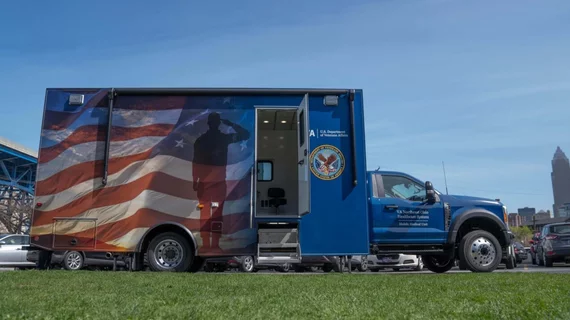Mobile medical units bring healthcare to homeless veterans, ‘meeting them where they are’
The U.S. Department of Veteran Affairs (VA) in Ohio is opening a mobile healthcare facility to bring medical aid and preventive care to homeless veterans by "meeting them where they are," an announcement says.
The VA Northeast Ohio Health Care System (VANEOHS) in Cleveland unveiled the mobile medical unit—a complete exam room on wheels with a mission to increase care for veterans experiencing homelessness while helping prevent more from ending up on the street.
The mobile unit provides primary care services, care catered to women, audiology services, lab testing and other specialized services aimed at veterans, many of whom may not be able to regularly access VA clinics due to a lack of transportation or other socioeconomic barriers.
Managed by the VANEOHS, the project is a collaboration between several homeless programs. The mobile facility is part of a larger initiative at VANEOHS to provide care to the homeless through a combination of shelters and clinics.
“The VA mobile medical unit is an initiative that is supported by our Homeless Patient Aligned Care Team,” Leslie Yoak, homeless programs nurse manager at VA Northeast Ohio Health Care System, said in the announcement. “The team is focused on addressing the distinct challenges that homeless Veterans face both accessing and engaging in healthcare.”
The launch of the mobile facility in Cleveland is part of an ongoing nationwide initiative. In May 2022, VA healthcare systems began applying for funding to acquire the mobile medical units. Currently, there are 25 of them operating nationwide.
“Over the last month, we have been able to provide medical care, and other supportive services to Veterans at the shelters, and transitional housing locations for Veterans experiencing homelessness,” Yoak added.
To learn more about the VA mobile medical units, click here.

